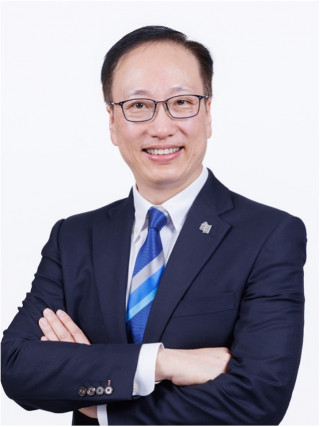Message from the Vice-President (Research and Development)
Professor CHAN, Che Hin Chetwyn
(陳智軒教授)
Vice President (Research and Development);
Peter T. C. Lee Chair Professor of Psychology
EdUHK is a young university in the Asia Pacific region, committing to the “Education Futures” approach. The term “Futures” encompasses the promise of a digital future driven by creativity, technology and innovation, while also acknowledging the uncertainties and challenges associated with such a future. Our mission focuses on education, research and innovation, and societal service, with scholarly activities to nurture future teachers, professionals and social leaders.
In less than 10 years, EdUHK has undergone a remarkable journey to further strengthen its capacity to become a research-intensive institution. At the heart of this transformation is to substantially increase the resources to invest in the faculty members, physical environment and multidisciplinary research agenda. A few examples include the recruitment of senior (chair professors) and junior (research assistant professors) faculty members, the construction of new university-level research facilities (URFs) and a new academic building, the establishment of nine multidisciplinary research clusters, and the launch of cross-institutional research schemes at local, national and international levels.
Furthermore, we have embraced external benchmarks and a culture of excellence to guide our research development. The University has begun participating in local and international system-level benchmarking such as the Quacquarelli Symonds (QS) and Times Higher Education (THE) for evaluating research performance, and adopting the Research Assessment Exercise’s (RAE) quality criteria of internationally leading or excellence on originality, significance, and rigor of the research work to guide the enhancements and inform internal resource allocation processes. The UNESCO’s Sustainable Development Goals forms another major framework that the University promotes to embed into in most of the research and scholarly activities conducted by the staff and students.
Our ongoing commitment is to cultivate a vibrant research ecosystem that not only advances knowledge but also generates meaningful societal impact, aligning with our vision in “Education Futures” and ensuring EdUHK’s relevance in a rapidly changing world.
Research Strategies

Enhance Quality and Efficiency of the Research Life Cycle
Exchange research ideas via research salon and CRF/RIF symposia, improve research grant success rate via writing workshops and vetting/review process, improve quality and quantity of research outputs, enhance research impact via significance and reach
Foster Multidisciplinary and Timely Research Effort
Establish the research clusters, faculty-level research centers progressing to university-level research centers and centers of excellence pipeline; and launch research seed funds
Strengthen Research Capacity
Build infrastructure including state-of-the-art equipment, high-performance computing facility and university research facilities (URFs), and research hubs for knowledge discovery and creation
Foster Knowledge Exchange
Institute translational research concepts; promote innovation and entrepreneurship, and public-private partnerships; connect applied research with industry, business and the community; engage in local, national and international ideation, incubation, and acceleration programme
Strengthen Research Partnerships
Form inter-institutional research collaborations locally, nationally and internationally
Synergize Talent Development
Foster local and international strategic partnerships for training research postgraduate students and professional doctoral students
Promote Performance-based Research Outcomes
Adopt research metrics (e.g. RAE and FWCI) to identify strengths and guide resource allocation to groom internationally leading and excellent disciplines
Discover More









_1760254099_1760254133.jpg)